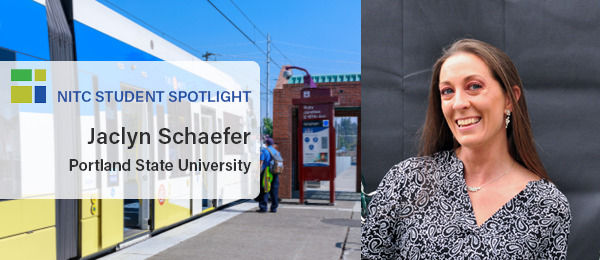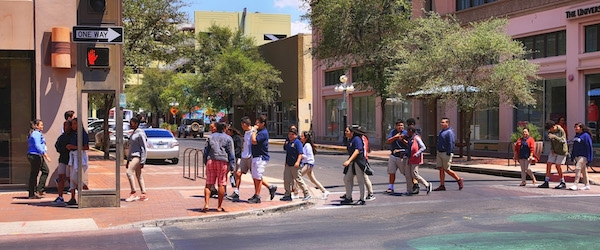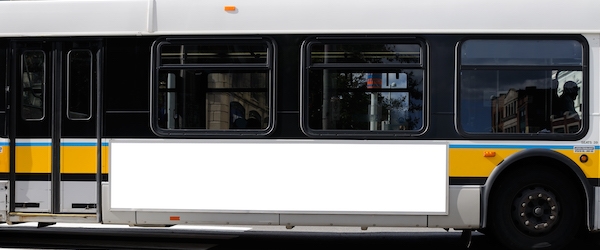Portland State University researchers Martin Swobodzinski and Amy Parker, with student co-authors Julie Wright, Kyrsten Hansen and Becky Morton, have published a new article in Frontiers in Education: "Seamless Wayfinding by a Deafblind Adult on an Urban College Campus: A Case Study on Wayfinding Performance, Information Preferences, and Technology Requirements."
The article reports on an empirical evaluation of the experience, performance, and perception of a deafblind adult participant in an experimental case study on pedestrian travel in an urban environment. The case study assessed the degree of seamlessness of the wayfinding experience pertaining to routes that traverse both indoor and outdoor spaces under different modalities of technology-aided pedestrian travel. Specifically, an adult deafblind pedestrian traveler completed three indoor/outdoor routes on an urban college campus using three supplemental wayfinding support tools: a mobile application, written directions, and a tactile map.
Results indicate that wayfinding performance and confidence differed considerably between the three wayfinding support tools. The tactile map afforded the most...
Read more









